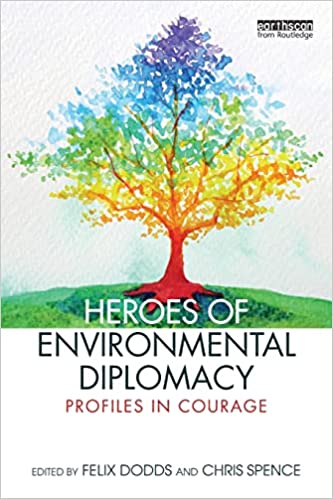Tomorrow's People and New Technology - Changing How We Live Our Lives By Felix Dodds, Carolina Duque Chopitea, Ranger Ruffins is out on the 14th of October.
The theme of the book is looking at 2030 and where we might be in terms of new technology.
The Fourth Industrial Revolution is characterized by the emergence of new technologies that are blurring the boundaries between the physical, the digital, and the biological worlds.
This book allows readers to explore how these technologies will impact peoples’ lives by 2030. It helps readers to not only better understand the use and implications of emerging technologies, but also to imagine how their individual life will be shaped by them. The book provides an opportunity to see the great potential but also the threats and challenges presented by the emerging technologies of the Fourth Industrial Revolution, posing questions for the reader to think about what future they want.
Emerging technologies, such as robotics, artificial intelligence, big data and analytics, cloud computing, nanotechnology, biotechnology, the Internet of Things, fifth-generation wireless technologies (5G), and fully autonomous vehicles, among others, will have a significant impact on every aspect of our lives, as such this book looks at their potential impact in the entire spectrum of daily life, including home life, travel, education and work, health, entertainment and social life.
Providing an indication of what the world might look like in 2030, this book is essential reading for students, scholars, professionals, and policymakers interested in the nexus between emerging technologies and sustainable development, politics and society, and global governance.
To supplement the publication of the book we are celebrating the launch of Sustainable Society Cafe, Carolina Duque joins us on the podcast to walk us through the first three industrial revolutions humanity has experienced up to this point and how the Fourth Industrial Revolution of today compares.
We discuss what the First through the Third Industrial Revolution meant for the world and the lives of ordinary people and how the Fourth Industrial Revolution might either make or break our global economy and our environment. Carolina Duque is co-author of the new book Tomorrow’s People and New Technology, which we are focusing on in our first seven episodes to imagine what life in 2030 might look like and how the emerging technologies over the next decade fit into the 2030 Agenda for Sustainable Development.







